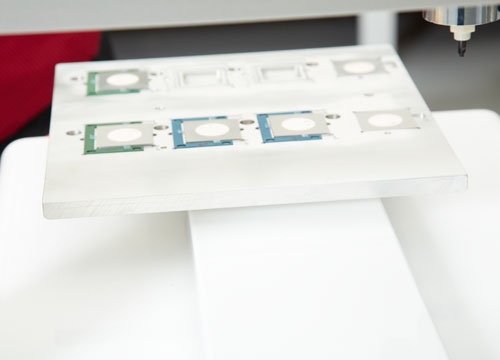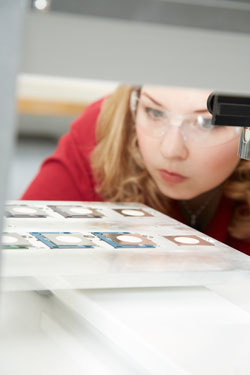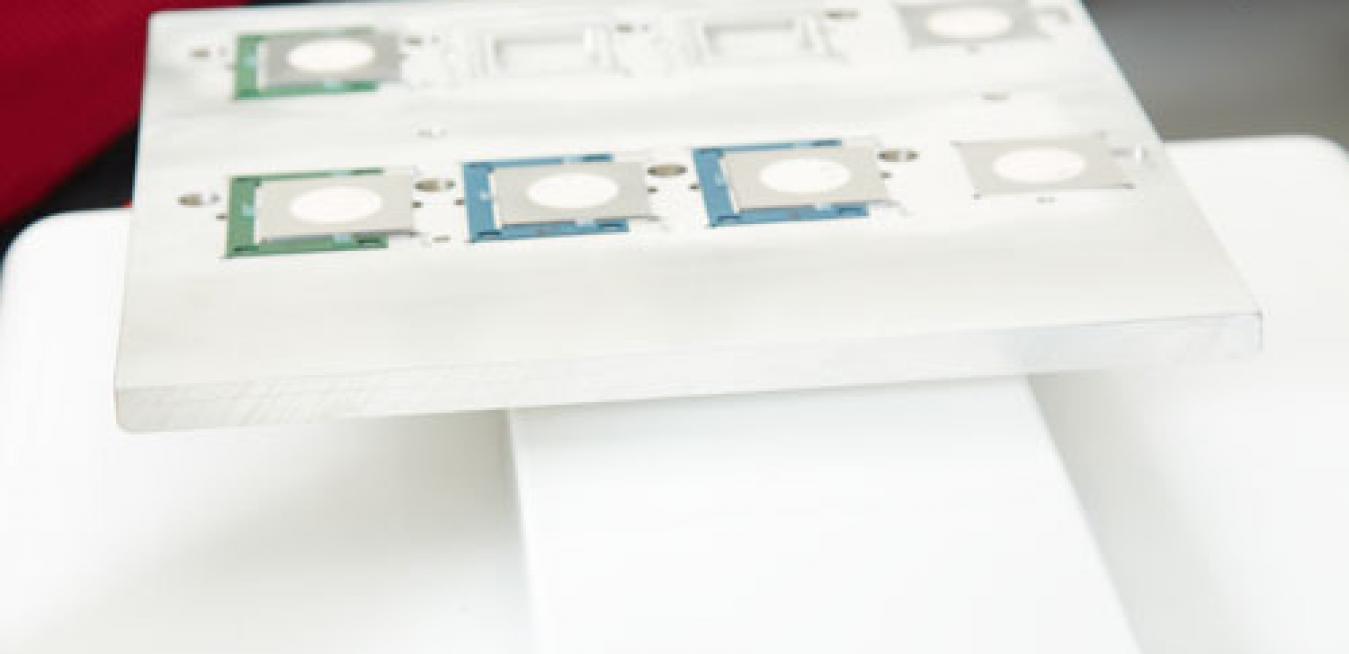The cooling fan is one of the bulkiest, noisiest and power hungry components in laptops. It’s also indispensable. The computers need them to jettison heat generated by powerful processors, or their brains would quickly fry up. But scientists at GE Global Research have recently developed a small device as thin as two stacked credit cards that could do the job, save space, reduce noise, and improve laptop battery life by as much as 30 percent.

The new cooling devices have no moving parts and work like tiny bellows.
The small machine, called a dual cool jet (DCJ), is no lab toy. GE just licensed the technology to Aavid Thermalloy, a leading global maker of heat sinks and cooling systems for everything from PCs to EVs. “This technology will help our customers imagine and bring to market innovative and powerful electronics products that would otherwise be impossible to consider,” said Norm Soucy, vice president and general manager at Aavid Thermalloy.
The new cooling devices have no moving parts and work like tiny bellows. They generate rapid pumping and sucking action by applying alternating electrical current across a piece of special ceramic material attached to the sides of two nickel plates separated by a narrow space. Electricity makes the ceramic bits expand and contract as a result of the piezoelectric effect. The vibrations cause the gap between the plates push out jets of air.
Dr. Peter de Bock, one of the GE inventors, said that there was “a very clear trend” in devices not getting faster but thinner. “There is a need for a new system that can provide airflow in a very narrow space,” he said. “The tablets of the future will have a system like this built in.”
GE engineers originally developed the device for cooling jet engines and reducing turbulence along aircraft wings. Inventor and principal engineer in GE’s Aero-Thermal & Mechanical Systems lab, Dr. Seyed Saddoughi, has been with his team running experiments with another version of the device, which can operate in water and possibly decrease its drag on ships. “With these devices we can manipulate flow intelligently,” Saddoughi says. “They give us active control.”

The device could save space, reduce noise, and improve laptop battery life by as much as 30 percent.





